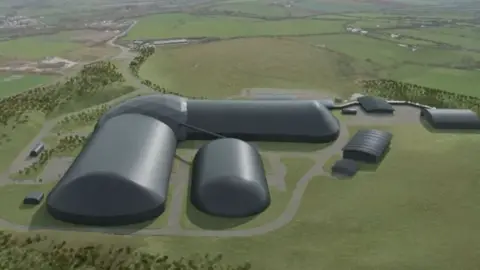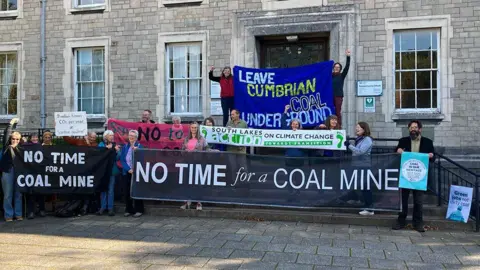 West Cumbria Mining
West Cumbria MiningPlans to build the UK’s first deep coal mine in more than 30 years have been quashed.
At the High Court, judge Justice Holgate said environmental assumptions underpinning the development at Whitehaven in Cumbria was “legally flawed”.
The proposal by West Cumbria Mining (WCM) had received the go-ahead from the previous Conservative government in December 2022.
Victoria Marson from Friends of the Earth said campaigners had won “a massive victory”. WCM said it will “consider the implications” of the judgement before commenting further.
Legal challenges were submitted by Friends of the Earth and South Lakes Action on Climate Change (SLACC), who claimed permission for the mine did not take into consideration the environmental impact of burning coal, rather it focussed only on running the facility.
Lawyers for WCM said there had been “repeated mischaracterisation” of the plans and the development would have a “broadly neutral effect on the global release of greenhouse gas”.
In his judgement, Mr Justice Holgate said: “The assumption that the proposed mine would not produce a net increase in greenhouse gas emissions, or would be a net zero mine, is legally flawed.”

At a hearing in July, the newly elected Labour government decided not to defend the decision to grant permission for the project, citing “an error in law”.
But WCM fought its case, arguing it could build a “unique” net zero mine.
That hearing was held just weeks after a Supreme Court ruling over an oil project in Horse Hill, Surrey, which said granting permission had been unlawful because it did not consider the emissions from burning the oil.
